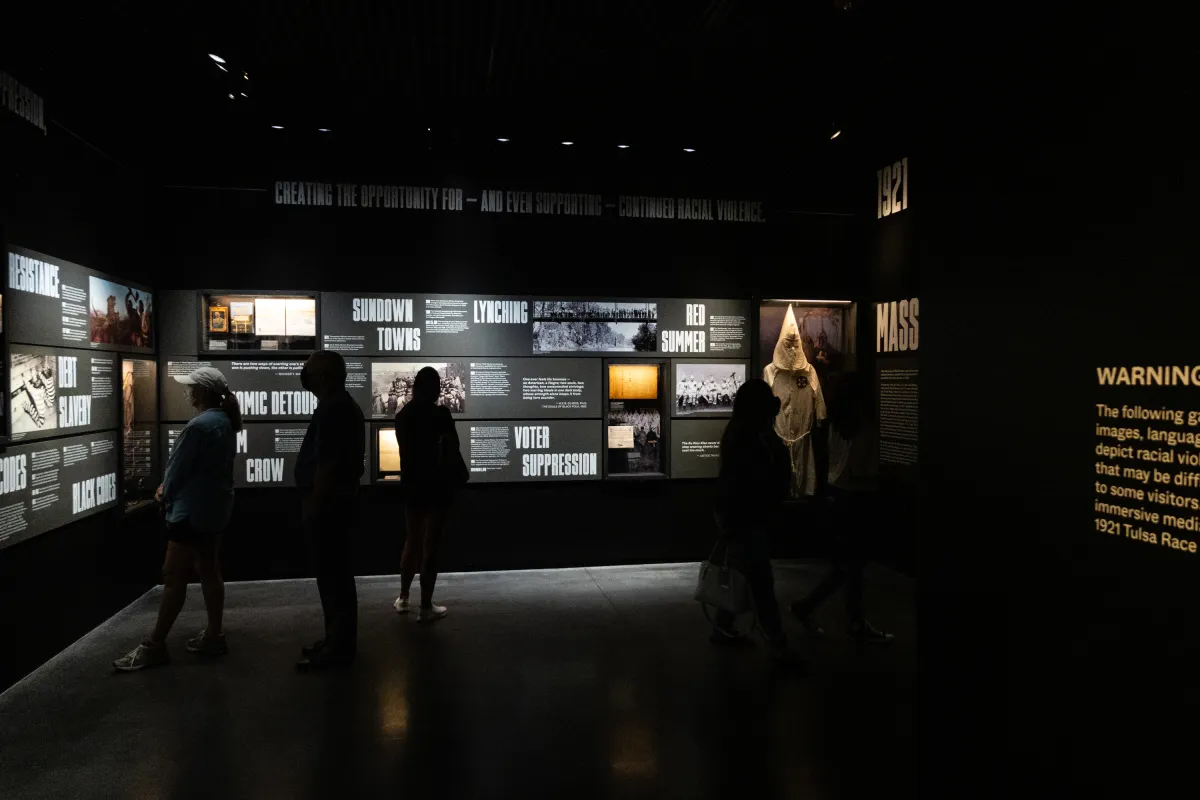|
Listen to this article here
Getting your Trinity Audio player ready...
|
For the past year, I’ve had the profound honor of serving as the Executive Director of the Greenwood Rising museum, a role that has filled me with deep gratitude and an overwhelming sense of purpose.
During this period, I’ve encountered remarkable individuals whose powerful experiences while exploring the rich history of the Greenwood District have left a lasting impression on me. Furthermore, I’ve witnessed a common sentiment among many visitors, particularly those from Oklahoma, who candidly admitted to being unaware of the story of Black Wall Street before immersing themselves in the experiences offered at Greenwood Rising. These experiences have effectively facilitated challenging yet essential dialogues from the kitchen table to the state house.
I firmly believe that informed citizenry is the hallmark of a good democracy.
In 2023 alone, nearly 50,000 individuals embarked on a journey through time, delving into the triumphant and tragic saga of Black Wall Street. Roughly fifty percent of our visitors hailed from Oklahoma and neighboring regions, with a significant portion comprising university and public school students. Hungry to learn the truth about what happened to Tulsa’s Black community in 1921, they came seeking. Many visitors exited more informed and enlightened by the indomitable spirit of Greenwood’s inhabitants.

We are committed to furthering the education surrounding Greenwood’s history, facilitating difficult but necessary conversations through introducing innovative programs and increased public engagement initiatives.
Now, future leaders can benefit from understanding the “hard history” of Tulsa and how it shapes the community’s cultural, social, political, and economic landscape today.
Despite the positive social cohesion fostered by Greenwood Rising and the Tulsa community, I’ve observed an ongoing trend of diminishing the teaching of difficult histories.
Oklahoma joins several neighboring states in passing legislation that perpetuates false narratives, portraying the teaching of hard historical facts in classrooms as a means of “indoctrinating” individuals against whiteness.
They advocate for the avoidance of celebrating, highlighting, and analyzing history through the lens of cultural diversity in favor of promoting homogeneity.
Some leaders claim to empower “parental choice” in education to “protect” young people from perceived emotional stress and “guilt of the sins of their forefathers” for which they bear no responsibility. These efforts are coupled with neutralizing state-funded diversity initiatives and reversing gains made through affirmative action.
Damn, the trauma of history’s true victims. Damn the truth!
Diminishing the truth of hard history is a broken and demoralizing strategy – especially for those who have suffered systemically from racist philosophies and practices woven throughout American history. These efforts are politically expedient.
There stands an axis of willful ignorance in the heart of the country, with leaders willing to sacrifice the strength and immeasurable value that diversity and equity bring to our communities and workforces. Consequently, we risk falling behind other national and international regions, culturally and economically, when we deny other’s humanity, their lived-experiences and ignore their historical or present trauma.
We all benefit from knowing each other’s histories and truths.
Hence, present circumstances necessitate an increase in equity concerning the dissemination of information and the accessibility of opportunities for those who have long been unfairly marginalized, such as the Greenwood community and its history being thoroughly taught in schools. My love for history, its accurate teaching, and its ability to transform the present is why I chose my profession; it’s why I accepted my current position at the History Center.
Greenwood Rising Museum champions the truth of our shared American history, empowering and inspiring generations and leaders dedicated to healing, reconciliation, and societal advancement. With this in mind, I extend an open invitation to all to explore Tulsa’s distinctive role in the American narrative and its ongoing journey toward a more perfect union.


